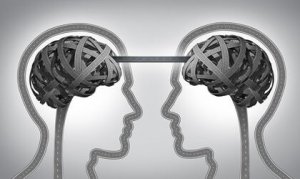The Theory of Psychological Reactance: Rebels without a Cause

We’ve all met people who seem to defy or resist everything they’re told. If you tell them to go left, they go right. If you say it’s up, they say it’s down. When you ask them why, they’ll probably say they don’t have to be like everyone else. In these cases, you’re dealing with a new theory: the theory of psychological reactance.
The theory of psychological reactance states that some people are biased in their way of perceiving social order and their place in it. That’s why they’re reluctant to follow rules, instructions, or guidelines. They find it more motivating and stimulating to go their own way.
They often see rules as a restriction on their freedom, or as an unnecessary imposition. These people pride themselves on their own rebelliousness, even if that rebelliousness isn’t directed towards any particular goal. In fact, most of the time there’s no reason, other than to go against the flow just for the sake of it. Sometimes they do it openly and, on other occasions, they disguise it somewhat.
Many adopt reactive attitudes when they feel that someone or something is threatening their freedom. However, some take this to extremes. They’re the so-called “rebels without a cause“. This can cause many difficulties in their lives. Let’s delve deeper into this.
“I can’t change the direction of the wind, but I can adjust my sails to always reach my destination.”
-Jimmy Dean-

The theory of psychological reactance and its parameters
According to the theory of psychological reactance, some parameters define whether behavior patterns fall into the category of reactance or not. Sometimes, people resist rules because they feel they’re unfair. However, in other cases, their own particular personality makes them do it.
The key parameters, according to the theory of psychological reactance, are the following:
- Perception of freedom. A person only feels that they’re free if they can get rid of certain norms or rules that they’re expected to abide by. If they can achieve this, then they feel free, even if they remain constrained in other aspects.
- Proportionality with the threat. The stronger the threat to their resistance, the more reactionary it is. If their freedom is eliminated, then their reactance reaches its peak.
- Importance of freedom. A person experiences greater reactance when freedoms that are particularly important to them are restricted. If there aren’t any impositions on their freedom, then their reactivity will decrease.
- Relationship with other types of freedom. If the threatened freedom is related to other aspects of freedom, then the reactance will tend to be stronger.
- Source of the threat. The less legitimate the source of the threat to freedom, the stronger the reactance will be.
We can find the most typical example of reactance in teenagers. When a parent, for example, restricts their time of arrival, then it’s likely that there will be strong reactance, especially if they don’t respect their parents or consider their rules to be fair or legitimate. In these cases, the teenager is likely to look for a way to disregard the order.

The effects of reactance
The theory of psychological reactance shows that this type of behavior is problematic and creates a series of negative consequences for the person and for those around them. It’s a distorted view of reality and of dealing with social situations and it creates a worrying regulatory vacuum in their lives.
The main difficulties it causes are the following:
- It lends itself to the creation of mutual manipulation methods. This happens when one person resists a rule or norm, and then another person uses tricks to overcome the resistance. For example, an employee breaks a rule, the company imposes a sanction, and then the employee breaks another rule in order not to comply with the sanction.
- It involves a useless expenditure of emotional energy. What reactance does is worsen conflicts rather than resolve them. Keeping a conflict going and not giving up requires a lot of effort.
- It feeds biases and prejudices. Reactance prevents a person from seeing the real reason behind any given rule or constraint. Not all limits to our freedom are negative. Many of them are aimed at ensuring a higher degree of justice, fairness, or collective well-being.
To rebel or not to rebel?
When a rule or law infringes upon individual freedom in certain important matters or areas, then rebelling is completely legitimate. However, this is very different from adopting an attitude of systematic disobedience and rebellion. We’re talking here about a disposition that can erode away a person’s personality and character, and also affect those around them, as well as the objectives and goals they set for themselves.
We’ve all met people who seem to defy or resist everything they’re told. If you tell them to go left, they go right. If you say it’s up, they say it’s down. When you ask them why, they’ll probably say they don’t have to be like everyone else. In these cases, you’re dealing with a new theory: the theory of psychological reactance.
The theory of psychological reactance states that some people are biased in their way of perceiving social order and their place in it. That’s why they’re reluctant to follow rules, instructions, or guidelines. They find it more motivating and stimulating to go their own way.
They often see rules as a restriction on their freedom, or as an unnecessary imposition. These people pride themselves on their own rebelliousness, even if that rebelliousness isn’t directed towards any particular goal. In fact, most of the time there’s no reason, other than to go against the flow just for the sake of it. Sometimes they do it openly and, on other occasions, they disguise it somewhat.
Many adopt reactive attitudes when they feel that someone or something is threatening their freedom. However, some take this to extremes. They’re the so-called “rebels without a cause“. This can cause many difficulties in their lives. Let’s delve deeper into this.
“I can’t change the direction of the wind, but I can adjust my sails to always reach my destination.”
-Jimmy Dean-

The theory of psychological reactance and its parameters
According to the theory of psychological reactance, some parameters define whether behavior patterns fall into the category of reactance or not. Sometimes, people resist rules because they feel they’re unfair. However, in other cases, their own particular personality makes them do it.
The key parameters, according to the theory of psychological reactance, are the following:
- Perception of freedom. A person only feels that they’re free if they can get rid of certain norms or rules that they’re expected to abide by. If they can achieve this, then they feel free, even if they remain constrained in other aspects.
- Proportionality with the threat. The stronger the threat to their resistance, the more reactionary it is. If their freedom is eliminated, then their reactance reaches its peak.
- Importance of freedom. A person experiences greater reactance when freedoms that are particularly important to them are restricted. If there aren’t any impositions on their freedom, then their reactivity will decrease.
- Relationship with other types of freedom. If the threatened freedom is related to other aspects of freedom, then the reactance will tend to be stronger.
- Source of the threat. The less legitimate the source of the threat to freedom, the stronger the reactance will be.
We can find the most typical example of reactance in teenagers. When a parent, for example, restricts their time of arrival, then it’s likely that there will be strong reactance, especially if they don’t respect their parents or consider their rules to be fair or legitimate. In these cases, the teenager is likely to look for a way to disregard the order.

The effects of reactance
The theory of psychological reactance shows that this type of behavior is problematic and creates a series of negative consequences for the person and for those around them. It’s a distorted view of reality and of dealing with social situations and it creates a worrying regulatory vacuum in their lives.
The main difficulties it causes are the following:
- It lends itself to the creation of mutual manipulation methods. This happens when one person resists a rule or norm, and then another person uses tricks to overcome the resistance. For example, an employee breaks a rule, the company imposes a sanction, and then the employee breaks another rule in order not to comply with the sanction.
- It involves a useless expenditure of emotional energy. What reactance does is worsen conflicts rather than resolve them. Keeping a conflict going and not giving up requires a lot of effort.
- It feeds biases and prejudices. Reactance prevents a person from seeing the real reason behind any given rule or constraint. Not all limits to our freedom are negative. Many of them are aimed at ensuring a higher degree of justice, fairness, or collective well-being.
To rebel or not to rebel?
When a rule or law infringes upon individual freedom in certain important matters or areas, then rebelling is completely legitimate. However, this is very different from adopting an attitude of systematic disobedience and rebellion. We’re talking here about a disposition that can erode away a person’s personality and character, and also affect those around them, as well as the objectives and goals they set for themselves.
This text is provided for informational purposes only and does not replace consultation with a professional. If in doubt, consult your specialist.







